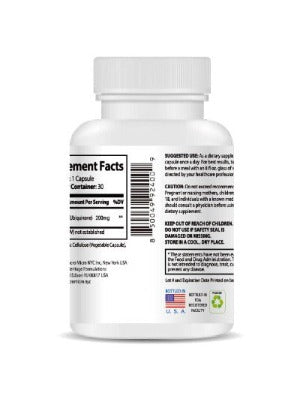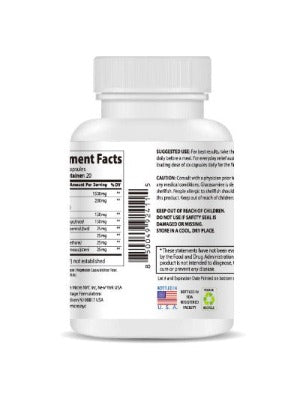Understanding Eye Allergies and Itchy Eyes
Eye allergies and itchy eyes are common issues that affect millions of people every year. These uncomfortable conditions arise when the eyes come into contact with allergens such as pollen, dust mites, pet dander, or mold. The body’s immune system reacts to these irritants, leading to symptoms like redness, swelling, and, of course, that persistent itch that can make daily life challenging.
Itchy eyes can be particularly frustrating as they not only lead to discomfort but can also distract you from work, school, or daily activities. In some cases, rubbing your eyes can exacerbate the problem, leading to further irritation or even infections. Understanding what causes eye allergies and how to manage symptoms is essential for maintaining eye health and overall comfort.
Why Are Eye Allergies So Common?
Eye allergies are becoming increasingly prevalent in our modern lives, and several factors contribute to this trend. In today's fast-paced world, individuals are frequently exposed to various allergens, which can trigger eye allergies. Some of the primary reasons include:
- Environmental Pollution: Urbanization and industrial activities have increased the levels of airborne pollutants that can irritate the eyes.
- Climate Change: Changes in weather patterns can affect the growth of plants, leading to heightened pollen levels during certain seasons.
- Increased Indoor Living: Spending more time indoors can expose individuals to indoor allergens, such as dust mites and pet dander, which can trigger symptoms.
- Food Allergies: In some cases, food allergies can also manifest as eye allergies. Symptoms may arise after consuming certain foods, leading to itchy eyes.
These factors, combined with genetic predisposition, can leave many individuals susceptible to eye allergies, making it essential to recognize symptoms and seek effective relief.
Identifying Symptoms of Eye Allergies
Recognizing the symptoms of eye allergies is crucial for effective management. Common signs include:
- Itchy Eyes: The most noticeable symptom, often leading to a reflexive urge to rub the eyes.
- Red or Swollen Eyes: Allergens can cause blood vessels in the eyes to dilate, leading to redness and puffiness.
- Watery or Teary Eyes: The eyes produce excess tears in response to irritation, which may provide temporary relief but can also blur vision.
- Blurred Vision: Swelling and tearing can lead to temporary blurred vision, making it hard to focus.
- Increased Sensitivity to Light: Allergic reactions can make the eyes more sensitive to light, causing discomfort in bright environments.
If you experience these symptoms, especially during certain seasons or after exposure to pets or dust, you might be dealing with eye allergies. Keeping a symptom diary can help identify triggers and patterns for more effective management.
Effective Relief Solutions
Finding relief from eye allergies and itchy eyes is essential for comfort and quality of life. Here are some effective solutions to consider:
- Questwise Eye Drops: Designed to soothe irritated eyes, Questwise eye drops provide quick relief from itching and redness. Their unique formulation helps to wash away allergens and hydrate the eyes. Many users appreciate the fast-acting effects and the ability to use them throughout the day.
- Japanese Eye Patches: Known for their calming effects, Japanese eye patches can be a game-changer for individuals suffering from itchy eyes. These patches often contain soothing ingredients like green tea extract, hyaluronic acid, and collagen, which help reduce inflammation and provide moisture to the eyes. Users report feeling immediate relief after use, making them an excellent option for those needing quick comfort.
- Cold Compress: Applying a cold compress to your eyes can alleviate itching and reduce swelling. This simple remedy can provide immediate comfort. Just soak a clean cloth in cold water, wring it out, and place it over your closed eyes for several minutes.
- Over-the-Counter Antihistamines: Oral antihistamines can help reduce allergic reactions throughout the body, including the eyes. Consult your pharmacist for recommendations. Some antihistamines are specifically formulated for eye allergies and can help alleviate symptoms effectively.
- Environmental Control: Managing allergens in your surroundings is key. Regular cleaning, using air purifiers, and keeping windows closed during high pollen seasons can significantly reduce exposure. Consider using hypoallergenic bedding and vacuuming regularly with a HEPA-filter vacuum cleaner to minimize dust mites.
- Protective Eyewear: Wearing sunglasses when outdoors can help shield your eyes from airborne allergens. Look for wraparound styles that provide maximum coverage.
- Stay Hydrated: Drinking plenty of water can help keep your body hydrated, which may reduce the severity of allergic reactions.
Natural Remedies for Eye Allergies
In addition to over-the-counter solutions, some individuals find relief through natural remedies. Here are a few options to consider:
- Chamomile Tea Bags: After brewing chamomile tea, allow the tea bags to cool and place them over your eyes for 10-15 minutes. Chamomile has anti-inflammatory properties that can soothe itchy eyes.
- Cold Milk Compress: Soak a clean cloth in cold milk and apply it to your eyes. The proteins in milk can help reduce inflammation and provide relief.
- Aloe Vera Gel: Applying pure aloe vera gel around the eyes can provide soothing relief due to its anti-inflammatory and hydrating properties.
When to Seek Professional Help
If your symptoms persist despite trying these relief solutions, it’s important to consult a healthcare professional. They can help identify specific allergens and recommend tailored treatments, ensuring that your eye allergies and itchy eyes are managed effectively. In some cases, prescription medications may be necessary to control severe symptoms.
Conclusion
Eye allergies and itchy eyes can be daunting, but with the right knowledge and tools, relief is within reach. Whether you opt for Questwise eye drops, soothing Japanese eye patches, or simple home remedies, taking proactive steps can help you navigate this common issue. Remember, if symptoms persist or worsen, don’t hesitate to reach out to a doctor for further assistance. Your eyes deserve the best care!
Taking care of your eyes is a vital part of your overall health. By being proactive and informed about eye allergies and itchy eyes, you can enjoy life without the constant distraction of discomfort. Don’t let eye allergies hold you back—explore these relief solutions and take action today!









